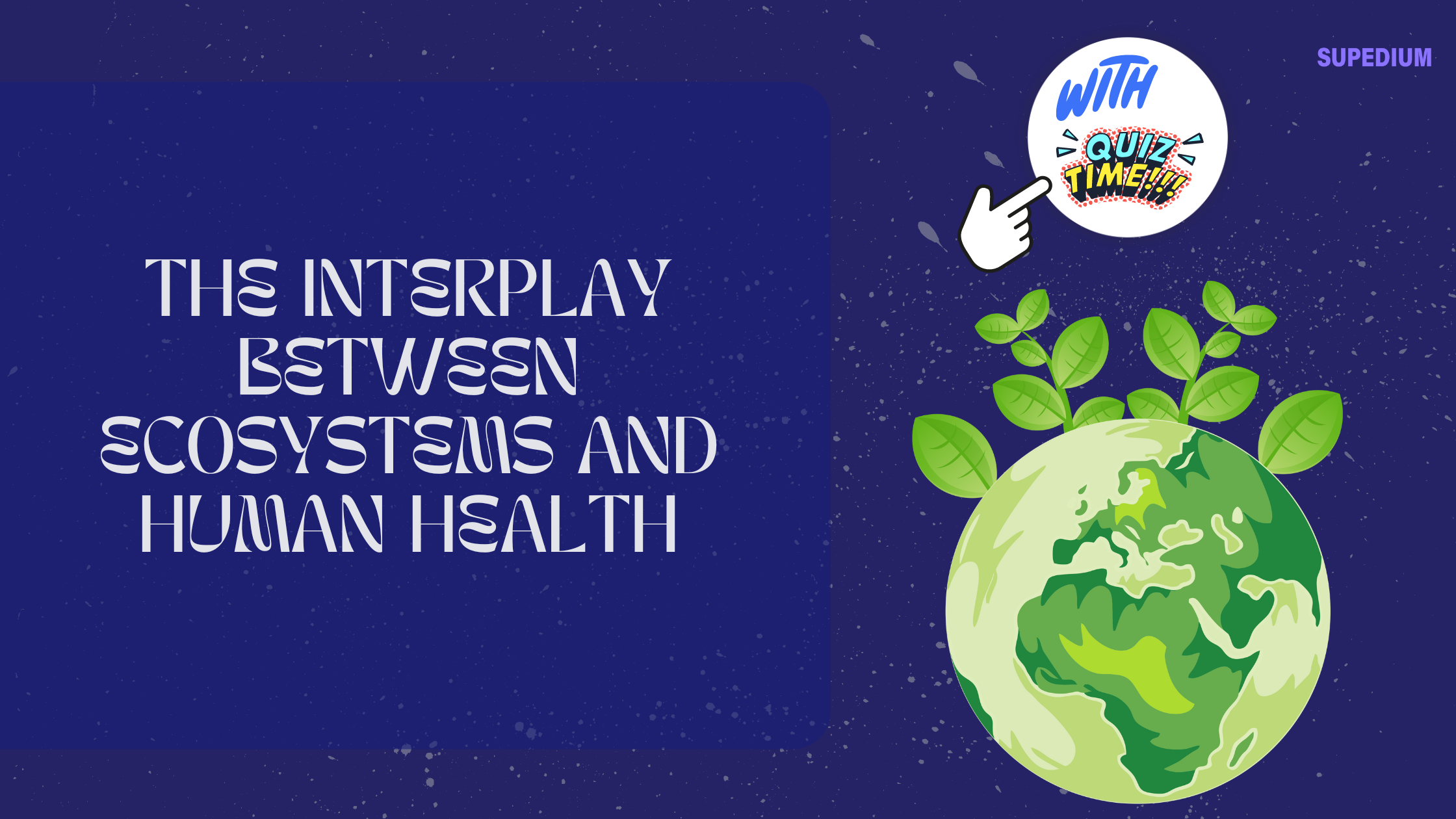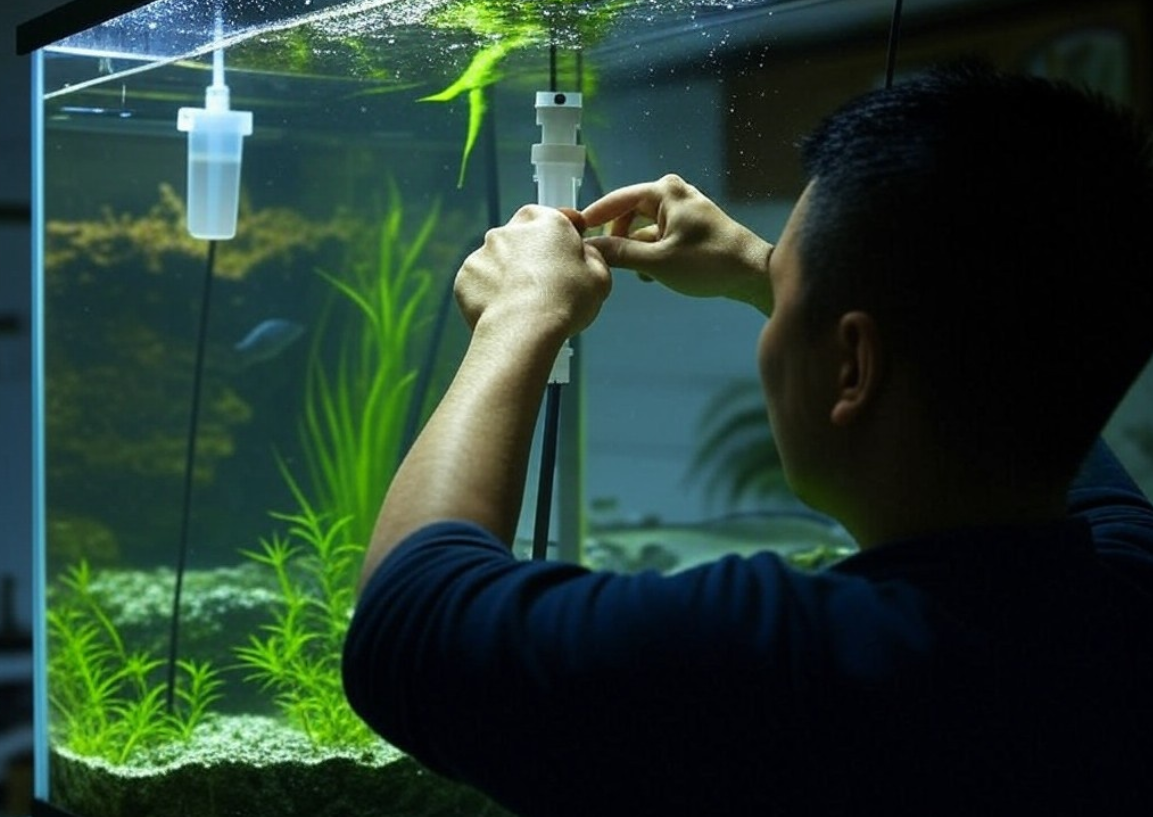Table of Contents
![]()
Introduction
Ecosystems, the dynamic complexes of plant, animal, and microorganism communities interacting with their physical environment, play a crucial role in sustaining human health and well-being. They provide essential services that underpin our quality of life and health outcomes. Understanding the intricate relationship between ecosystems and human health is vital for developing effective public health strategies and environmental policies.
Ecosystem Services and Their Impact on Human Health
Provisioning Services
Ecosystems deliver essential resources through provisioning services, such as food production and medicinal resources. Agricultural systems and fisheries are directly dependent on healthy ecosystems, which support soil fertility and water quality essential for crop and fish production. However, ecosystem degradation due to deforestation, pollution, and climate change can threaten food security by reducing yields and increasing the vulnerability of crops and fisheries to pests and diseases.
Medicinal resources also stem from ecosystems. Many pharmaceutical drugs are derived from natural compounds found in plants, animals, and microorganisms. Traditional medicine practices and modern drug development rely heavily on biodiversity. The loss of habitats and biodiversity due to human activities poses a significant risk to the discovery of new medicines and the preservation of traditional health practices.
Regulating Services
Ecosystems play a pivotal role in regulating environmental conditions that directly impact human health. Forests, wetlands, and other natural systems contribute to air quality by filtering pollutants and producing oxygen. The destruction of these ecosystems leads to increased air pollution and respiratory problems, exacerbating conditions such as asthma and chronic bronchitis.
Water quality is similarly regulated by ecosystems. Wetlands, forests, and watersheds act as natural filters, removing pollutants and sediments from water supplies. Pollution from agricultural runoff, industrial activities, and urban development can overwhelm these natural filtration systems, leading to contaminated water sources and increased risk of waterborne diseases.
Climate regulation is another crucial service provided by ecosystems. Forests and oceans act as carbon sinks, absorbing carbon dioxide from the atmosphere and mitigating climate change. Disruption of these systems due to deforestation and ocean degradation contributes to global warming, which in turn affects human health through increased heatwaves, altered disease patterns, and extreme weather events.
Supporting Services
Supporting services include processes that are essential for maintaining ecosystem health and productivity. Nutrient cycling, which involves the decomposition of organic matter and the recycling of nutrients, is vital for soil health and agriculture. Healthy soils support crop growth and food production, whereas soil degradation can lead to reduced agricultural yields and poor nutritional outcomes.
Pollination, carried out by insects, birds, and other animals, is essential for the reproduction of many plants and crops. The decline in pollinator populations due to habitat loss, pesticide use, and climate change threatens food production and biodiversity. This decline can affect human nutrition and food security by reducing the availability of fruits, vegetables, and nuts.
Cultural Services
Ecosystems also provide cultural services that impact human well-being. Natural landscapes and green spaces offer recreational opportunities and contribute to mental health by reducing stress and promoting relaxation. The benefits of nature-based therapies and green spaces are well-documented, highlighting the importance of preserving natural environments for mental and emotional health.
Cultural and spiritual values associated with ecosystems play a significant role in many societies. Ecosystems are integral to cultural practices, traditions, and spiritual beliefs. Loss of natural landscapes can disrupt cultural heritage and diminish community well-being.
Human Activities Impacting Ecosystems and Health
Deforestation and Habitat Destruction
Deforestation and habitat destruction have profound impacts on ecosystems and human health. The loss of forests reduces biodiversity, disrupts ecosystem services, and contributes to climate change. These changes can affect human health by altering disease dynamics, such as increasing the risk of zoonotic diseases (diseases transmitted from animals to humans) due to changes in animal habitats and behaviors.
Pollution
Pollution from industrial, agricultural, and urban sources affects both air and water quality. Air pollution, including particulate matter and harmful gases, is linked to respiratory and cardiovascular diseases. Water pollution, resulting from runoff of chemicals and waste, poses risks of waterborne diseases and impacts aquatic ecosystems that are crucial for food security.
Climate Change
Climate change, driven by increased greenhouse gas emissions, has wide-ranging health impacts. Extreme weather events such as heatwaves, floods, and storms can lead to injuries, heat-related illnesses, and mental health stress. Changes in climate can also alter the distribution and behavior of disease vectors, such as mosquitoes, leading to the spread of diseases like malaria and dengue fever.
Overexploitation of Resources
Overexploitation of natural resources, such as overfishing and soil degradation, affects ecosystem health and human nutrition. Overfishing depletes marine populations, disrupting food chains and impacting coastal communities that rely on fish for sustenance. Soil degradation, caused by unsustainable agricultural practices, reduces crop yields and affects food availability and quality.
Case Studies
Amazon Rainforest
The Amazon Rainforest is a critical component of the global climate system and biodiversity. Its deforestation contributes to climate change and loss of species, affecting both local and global health. Indigenous communities relying on the forest for their livelihoods face health risks from environmental changes and loss of traditional knowledge.
Coral Reefs
Coral reefs provide essential services such as coastal protection and support for marine biodiversity. Coral bleaching, caused by rising sea temperatures and ocean acidification, threatens these ecosystems. The degradation of coral reefs impacts local fisheries and tourism, with potential consequences for human health and economic stability.
Urban Green Spaces
Urban green spaces, including parks and community gardens, offer significant health benefits by providing recreational opportunities and reducing urban heat islands. However, rapid urbanization poses challenges for maintaining and expanding these spaces. Effective urban planning and green space management are essential for supporting urban health and well-being.
Mitigation and Adaptation Strategies
Conservation Efforts
Protecting and restoring ecosystems is crucial for maintaining their health and the services they provide. Establishing protected areas, implementing sustainable management practices, and investing in ecosystem restoration projects can help preserve biodiversity and improve health outcomes.
Sustainable Practices
Adopting sustainable agricultural and fisheries practices can mitigate the negative impacts of resource exploitation. Sustainable land use, conservation agriculture, and responsible fishing practices help maintain ecosystem health and ensure long-term food security.
Public Health Interventions
Integrating ecosystem health into public health policies is essential for addressing the interconnected challenges of environmental and human health. Education and community engagement initiatives can raise awareness and promote actions that support both ecosystem conservation and health improvement.
Conclusion
The interplay between ecosystems and human health is complex and multifaceted. Ecosystems provide vital services that support human well-being, while human activities can both impact and be impacted by changes in ecosystem health. Addressing these challenges requires a holistic approach that integrates environmental and health considerations into policy and practice. By fostering sustainable practices, supporting conservation efforts, and promoting interdisciplinary research, we can work towards a healthier future for both people and the planet.






Be the first to comment